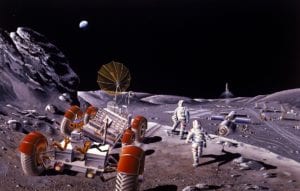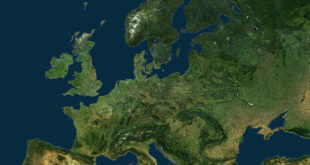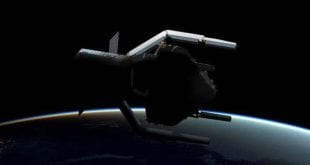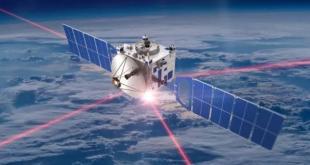
In this article, Simon Drake, MD of Space Ventures Investors, CEO of Space Commodities Exchange, and organiser of Space Resources Community Voice, explores the reasons why space really has to rise to the top of politicians’ lists of priorities and why it’s down to us to do something about it.
Space resources is an adventure, a destination, and ultimately a salvation, for humanity. This message needs to be broadcast by those in the space community in such a way that it becomes more than an intelligently stated opinion and lasts longer than a viral sound-byte. This message is a pact to be fulfilled by this generation and all that come after it. To make this message work we have to spread it and live it as a pact with the future.
In an age of numerous platforms for opinions, in a time where we have access to enough knowledge to fill several lifetimes, all set in a 24-hour mass-media news-cycle collective mindset where some opinions backed by a few facts get enough attention to sway public attention this way or that, one has to wonder how to champion the theme of space resources. So much noise, so let’s create the signal.
To many in the space resources community, there is no need to preach to the converted (we are indeed biased to the need for more funding into space resources), because our opinions are already divided along the lines of Moon or Mars, and the Moon camp can be split between utilising resources like regolith on the equator, or searching for ice in the South Poles. These are not simple aesthetic decisions, these are complex missions that lead to grand industrial revolutions. The ultimate decision-maker for the space agencies on “if we can utilise other worlds and where exactly”, are their respective voters. Between the voters (and this wide spectrum of voters includes the tax-payers, the youth, the middle-class, the elderly, the list goes on etc) and the decision-makers are the politicians; elected to positions of authority to carry out the will of the people. Your job is to make their job a bit more exciting.
Before I go any further, first a disclaimer: I’ve lived and paid taxes in three countries, I have children, I’ve worked in Government, in small business, for corporations, and now I manage a space investing company which basically positions space as an investment. From a business perspective the marketing required for a space investment is difficult enough, but to sway voters in democracies is a completely different and more complicated matter. Now it would be easy to complain about the hardships of selling space to your fellow citizens, and how they should explore the stars but first limit their government’s expenditure on hospitals, education, the needy… the list of recipients and causes keep expanding, much like a vacuum. Nature (well, human nature) abhors a vacuum, so let’s fill part of that “how should our country spend its income” vacuum as a community with our own message: Do what we humans have always been doing – Utilising resources. Where? Start with the Moon. Oh sorry, the Moon to get to Mars; create an argument out of it. Get people involved.
Many people will ask, how can the complex subject of space resources possibly compete with more humane and needy things? It doesn’t and it shouldn’t. The message is “Space resources is an adventure, a destination, and ultimately a salvation, for humanity”. You either take it or leave it. And if you take it, and you want to be more than an observer, then you should write to your local politician and state your opinion: “On top of our nation’s space budget, allocate extra capital to space resources.”
Using the proper channels of communication, such messages should be expressed and debated (and it will be) but recently I have come to the conclusion that in the digital age the numerous channels of communication are not so neat and civilised. To posit an argument in favour of space resources to a cross-section of voters will cause you to lose the argument; there is always a voice louder than yours, there is always a humanitarian cause greater and more deserving than an inter-agency off-world operation directing human-like robots to bake regolith using energy from a miniaturised nuclear reactor, while on the freezing dark side of the Moon. You get the picture. Therefore, don’t try to compete, yet don’t hesitate with the space resources messages. Use the system established over hundreds of years, and use it for a purpose where the pay-off is for generations ahead of you.
Contact your politician. State your case why allocating funding to space resources is an ideal investment. Get your politicians on board with the pact: We are exploring space. We are utilising resources. That’s what they are there for. It starts with you.
URL: http://spaceresources.eu/space-resources-community.html

Bio: Simon Drake co-founded Space Ventures Investors in 2007, and co-founded the Space Commodities Exchange in 2019. He is a passionate Space industry advocate, and has formed the Space Resources Community Voice as platform to promote space resources. He was previously a mentor in, and is still active in, the Copernicus program (Earth Observation). He has decades of experience in investment banking (Jefferies, Goldman Sachs and Houlihan Lokey), marketing (online, print, and publishing), and working with start-ups. He leverages his wide experience to focus on the concept of making space investing a reality for the general public. He was born and raised in Australia, and now lives in Germany. His email is: [email protected]





